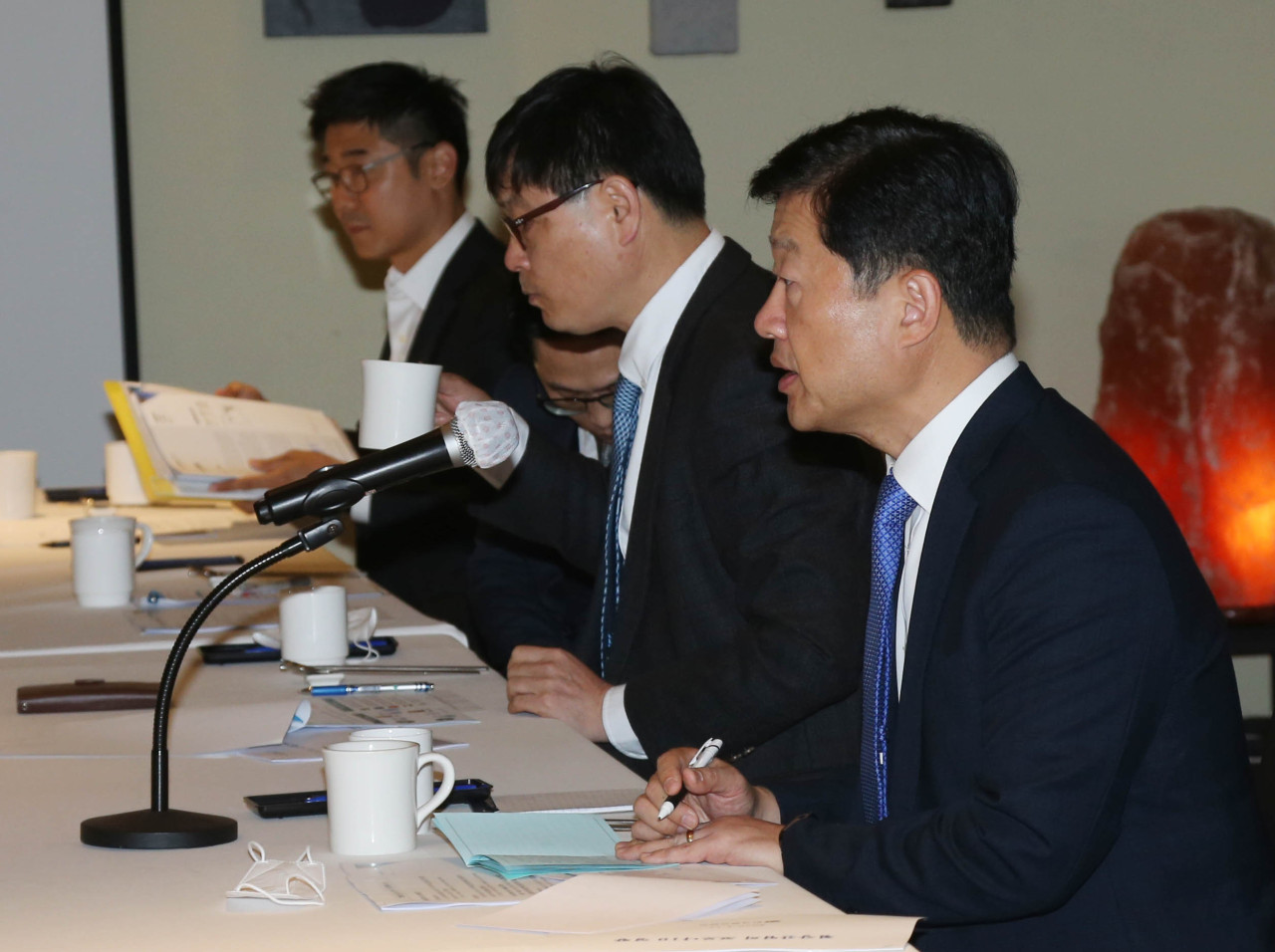 |
The Korea Chamber of Commerce and Industry’s Vice Chairman Woo Tae-hee speaks at a meeting with industry counterparts over coronavirus measures on Thursday. (KCCI) |
Representatives of South Korea’s key industries expressed concerns about the coronavirus pandemic and raised their calls for the government to expand support for the sectors reeling.
On Thursday, the Korea Chamber of Commerce and Industry and associations of five industries, including automobiles, steel, petrochemicals, machinery and shipbuilding, jointly held a meeting to listen to the difficulties of the industries and discuss solutions.
“The economic impact of coronavirus was partly seen in the first quarter, but it is expected to begin in earnest in the second quarter,” said Kim Jin-woo, an analyst at the Korea Investment & Securities, who gave a presentation at the meeting.
“If negative figures start to emerge in the second quarter, coupled with supply disruptions and demand reduction, economic players will be increasingly anxious.”
Kim cited automobiles as one of the sectors that will be hit hard by COVID-19.
“Automobiles are a demand-sensitive industry with a complex global supply chain. Demand in the global auto industry will fall by more than 7.7 percent in the second quarter as production disruptions and sales slowdowns begin in earnest.”
As the second presenter, Lee Jae-jin, chief of the Korea Iron & Steel Association’s trade cooperation division, expressed concern about the possibility that the economic crisis triggered by coronavirus and low oil prices could lead to the spread of protectionism, calling on the government to actively respond.
At the meeting, participants called for the government’s preemptive response to the demand falling and liquidity crisis in the second quarter.
Kim Tae-nyun, an operation committee manager from the Korea Automobile Manufacturers Association, said the spread of infectious diseases in overseas markets such as the US and Europe is expected to cause a global supply chain collapse and a sudden drop in demand from April.
“Policy support is urgently needed to revive domestic demand by expanding vehicle purchases by public institutions, strengthening subsidies for eco-friendly vehicles, reducing acquisition consumption taxes and boosting online transactions.”
Choi Hyung-ki, a vice-chairman of the Korea Association of Machinery Industry, said, “Due to the nature of the machinery industry, which usually takes three to 12 months from production to orders, it is too late to deal with the damage when it is visible.”
The government should proactively respond to the demand cliff by expanding public orders, such as early replacement of old equipment owned by public, universities and state-run research institutes, he said.
Lee Byung-chul, a vice president of the Korea Shipbuilding & Marine Engineering Association, said the global order for ships fell 71.3 percent on-year in the first quarter due to increased uncertainties caused by COVID-19 and falling oil prices.
“Financial support such as extending the maturity of shipbuilding finance and supplying operating funds is urgently needed.”
By Shin Ji-hye (
shinjh@heraldcorp.com)








